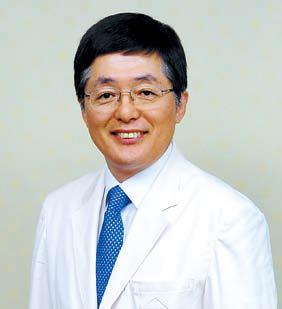The summer heat often leads to changes in lifestyle patterns. During the daytime, people may sink into a state of torpor and at night, people may experience difficulties going to sleep.
People who work in an environment with strong air-conditioning may also suffer various symptoms because of the drastic difference between the outdoor and indoor temperatures. In the summer, it is also easy for food to spoil and the conditions are ideal for microbial growth.
Therefore, people are more likely to suffer stomachaches, diarrhea and enteritis. In addition, due to the strong UV rays and frequent outdoor activities, the skin can weaken and get damaged easily. Preventions for some common summer illnesses are listed below.

Illness related to high temperatures
In the summer, you hear many people complaining that “the heat is getting to them.”
Tiredness, irritation, torpor, poor concentration and loss of appetite are some of the symptoms that can impair the efficacy of work and can also lead to work accidents.
These symptoms can be the early stages of a chronic disease but if the symptoms are temporary, then the most common reasons for them are overwork and the incongruity of the physical rhythm of the body. Rest and sleep are affected by the temperature and the weather, and in the summer it is difficult to fall asleep. As the temperature rises, the heart rate increases and body movements become more frequent, leading to shallow sleep.
Therefore, people are unable to feel refreshed after sleeping and this can lead to poor work efficiency. It is known that 27 degrees Celsius is the best room temperature to sleep in, so people should take note of this for summer room temperature. It also helps people to take a nap for approximately 30 minutes during the day in the summer.
Heat exhaustion
Heat exhaustion is commonly seen in people who work for prolonged hours in places with high temperature or in those people who have lost a lot of fluid from sweating due to vigorous exercise. People with heat exhaustion often feel light-headed, are in low spirit, feel sluggish and become tired more frequently.
Heat exhaustion is a condition caused by loss of significant amounts of body fluid and salts through sweating without adequate replacement. It can be easily corrected with appropriate treatments. It is helpful to drink lots of fluids, but not pure water. It is not advisable to consume excessive salt in an attempt to replace what’s lost. Ion drinks available in the market are often useful.
Heat Stroke
Unlike heat exhaustion, this is a serious condition. Heat stroke is caused when the central thermoregulators of the hypothalamus become paralyzed, resulting in a rise in the body temperature to dangerous levels. This can lead to loss of consciousness or even to a comatose state, and requires emergency transportation and intensive treatment in the hospital. People such as soldiers who take training before getting used to high temperatures, as well as elders or patients are most likely to experience heat stroke.
The author is a professor at Department of Family Medicine of Sungkyunkwan University School of Medicine and doctor at Samsung Medical Center.
People who work in an environment with strong air-conditioning may also suffer various symptoms because of the drastic difference between the outdoor and indoor temperatures. In the summer, it is also easy for food to spoil and the conditions are ideal for microbial growth.
Therefore, people are more likely to suffer stomachaches, diarrhea and enteritis. In addition, due to the strong UV rays and frequent outdoor activities, the skin can weaken and get damaged easily. Preventions for some common summer illnesses are listed below.

Illness related to high temperatures
In the summer, you hear many people complaining that “the heat is getting to them.”
Tiredness, irritation, torpor, poor concentration and loss of appetite are some of the symptoms that can impair the efficacy of work and can also lead to work accidents.
These symptoms can be the early stages of a chronic disease but if the symptoms are temporary, then the most common reasons for them are overwork and the incongruity of the physical rhythm of the body. Rest and sleep are affected by the temperature and the weather, and in the summer it is difficult to fall asleep. As the temperature rises, the heart rate increases and body movements become more frequent, leading to shallow sleep.
Therefore, people are unable to feel refreshed after sleeping and this can lead to poor work efficiency. It is known that 27 degrees Celsius is the best room temperature to sleep in, so people should take note of this for summer room temperature. It also helps people to take a nap for approximately 30 minutes during the day in the summer.
Heat exhaustion
Heat exhaustion is commonly seen in people who work for prolonged hours in places with high temperature or in those people who have lost a lot of fluid from sweating due to vigorous exercise. People with heat exhaustion often feel light-headed, are in low spirit, feel sluggish and become tired more frequently.
Heat exhaustion is a condition caused by loss of significant amounts of body fluid and salts through sweating without adequate replacement. It can be easily corrected with appropriate treatments. It is helpful to drink lots of fluids, but not pure water. It is not advisable to consume excessive salt in an attempt to replace what’s lost. Ion drinks available in the market are often useful.
Heat Stroke
Unlike heat exhaustion, this is a serious condition. Heat stroke is caused when the central thermoregulators of the hypothalamus become paralyzed, resulting in a rise in the body temperature to dangerous levels. This can lead to loss of consciousness or even to a comatose state, and requires emergency transportation and intensive treatment in the hospital. People such as soldiers who take training before getting used to high temperatures, as well as elders or patients are most likely to experience heat stroke.
The author is a professor at Department of Family Medicine of Sungkyunkwan University School of Medicine and doctor at Samsung Medical Center.

By Lee Jung-kwon
-
Articles by Korea Herald








![[Graphic News] More Koreans say they plan long-distance trips this year](http://res.heraldm.com/phpwas/restmb_idxmake.php?idx=644&simg=/content/image/2024/04/17/20240417050828_0.gif&u=)
![[KH Explains] Hyundai's full hybrid edge to pay off amid slow transition to pure EVs](http://res.heraldm.com/phpwas/restmb_idxmake.php?idx=644&simg=/content/image/2024/04/18/20240418050645_0.jpg&u=20240419100350)








![[KH Explains] Hyundai's full hybrid edge to pay off amid slow transition to pure EVs](http://res.heraldm.com/phpwas/restmb_idxmake.php?idx=652&simg=/content/image/2024/04/18/20240418050645_0.jpg&u=20240419100350)

![[Today’s K-pop] Illit drops debut single remix](http://res.heraldm.com/phpwas/restmb_idxmake.php?idx=642&simg=/content/image/2024/04/19/20240419050612_0.jpg&u=)